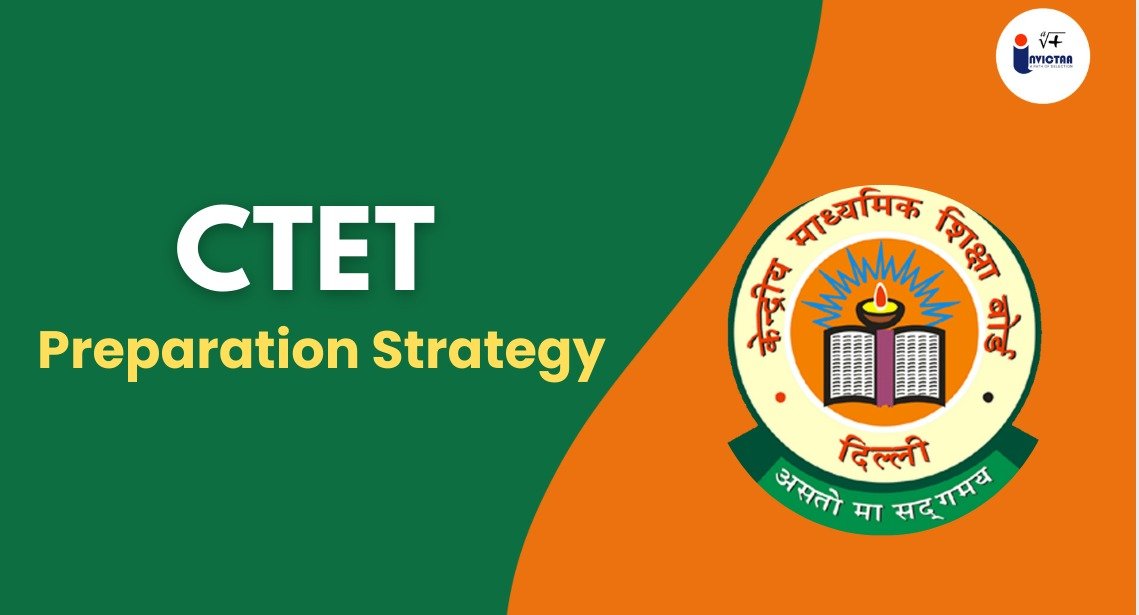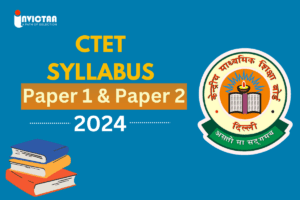CTET Preparation Strategy Tips: The Central Teacher Eligibility Test(CBET) is one of the most important exams in India for people who want to become teachers. This test is conducted by the Central Board of Secondary Education (CBSE). It tests the candidate’s competency in teaching and other skills about children from Class 1 to Class 8.
To prepare well for the CTET, one needs to formulate a proper TET Preparation Strategy, including understanding the syllabus, preparing his/her studying time, and practicing extensively. This article specifies the specifics to consider when preparing for the CTET.
Understanding the CTET Exam Pattern and Syllabus
The very first step in an organized CTET Preparation Strategy Tips is comprehending the structure of the exam. As CTET consists of two papers:
Paper 1: It is attempted by the candidates who want to be teachers of Classes I to V.
Paper 2: It is attempted by candidates who intend to be teachers of Classes VI to VIII.
Besides this, each paper has a definite set of subjects and structures regulated. So, let’s understand the examination pattern so that we know what to prepare.
| Section | Subjects | No. of Questions | Marks |
| Paper 1 | Child Development and Pedagogy, Language I, Language II, Mathematics, Environmental Studies | 30 per section | 150 |
| Paper 2 | Child Development and Pedagogy, Language I, Language II, Mathematics/Science (for Science teachers), or Social Studies/Social Science (for Social Studies teachers) | 30 for core subjects, 60 for specialization | 150 |
In this case, each question is worth a mark, and since there is no negative marking, you should try to answer every question with assurance.
Pay Attention to the Syllabus Carefully.
Key Points to Note:
- Child Development and Pedagogy: This section assesses your familiarity with the principles of teaching, psychological development, and learning approaches for children. A successful CTET Preparation Strategy Tips includes content on the development phases of childhood, special needs education, and learning theories.
- Language I and II: Language sections examine the understanding and teaching capability. Areas including language acquisition, language structures, and reading skills are essential.
- Subject-Specific Areas (Math, Science, or Social Studies): Revise basic knowledge, problem areas, and practical relevance.
Develop a Study Plan
CTET examination Preparation requires a solid CTET Preparation Strategy Tips. At the same time, it is crucial to have a thorough plan so that the vast syllabus is completed in an organized manner and without any panic; it is even more critical to have a reasonable study plan for all of them. First, make sure to cover the principles you find particularly difficult. Now, here’s a timetable example to get you started.
| Week | Topics to Cover | Time Allocation (Daily) |
| 1 | Mathematics/Environmental Studies | 3 hours |
| 2 | Child Development and Pedagogy | 2 hours |
| 3 | Language I and II | 2 hours each |
| 4 | Revision and Mock Tests | 2 hours |
| 5 | Subject-specific deep dive | 3 hours |
| 6 | Complete syllabus revision and practice | 2 hours |
Set aside time in the latter weeks for mock tests and revision, which will enable you to assess your rate of progress and adjust the areas that need more focus.
Build Conceptual Understanding
Every CTET Preparation Strategy Tips must include understanding each subject in detail. Do not memorize but understand concepts related to Child Development, Pedagogy, and Mathematics.
Ways to have a clear understanding of terms and concepts:
- Take NCERT as the primary read for mathematics, science, and social studies.
- See the materials focusing on teacher training for Child Development and Pedagogy concepts.
- Learn to read comprehension passages to enhance speed and accuracy.
Practice with Mock Tests and PYQs Papers
CTET aspirants can practice using papers from previous years and mock tests. These have the norm of the questions asked, frequently covered topics, and the level of the examination. Make it a point to take at least 5 to 10 mock tests before the exam.
Evaluating your performance on mock tests will help you discover areas for improvement. Concentrate on these in the final weeks of revision before the exam.
Improve Time Management Skills
In the end, time management is fundamental in the CTET Preparation Strategy Tips. At the start, you should practice under time constraints. Giving time limits to every section allows you to understand and enhance the areas that slow you down and the areas you are too fast on.
Recommended Time Usage according to each subject (for 2 ½ hour exam):
- Child Development and Pedagogy: 20 minutes
- Language I and II: 25 minutes each
- Subject Specific Area: 40 minutes
- Time For Other Activities: 10-15 minutes for review
Work on Weak Areas
Hone in on areas you find challenging and focus on them. Improving on weak areas while strategizing CTET Preparation would lead to better confidence and performance.
Important Notes For Exam Day
There are essential strategies to keep in mind on the exam day.
- Understand the question: The CTET questions can sometimes be tricky. Hence, comprehend the question and think before starting to answer the question: Don’t rush.
- Do not skip any question: Always answer every question, as there is no negative marking for wrong answers.
Relax, compose oneself, and stay stress-free. If you feel stressed, try mastering the art of relaxation through yoga or visualization.
Also read: CTET Syllabus 2024
CTET Preparation Strategy Tips FAQs
Q1 What is the first step in my CTET Preparation Strategy Tips?
Ans The first step is understanding the syllabus and exam pattern, which will guide your study plan.
Q2 How many hours a day should I follow my CTET Preparation Strategy Tips?
Ans: Aim for 2–3 hours of focused study daily, adjusting your time based on how comfortable you feel with each subject.
Q3 Why are mock tests necessary in the CTET Preparation Strategy Tips?
Ans Mock tests are crucial as they help you familiarize yourself with the exam format, improve time management, and identify weak areas.





